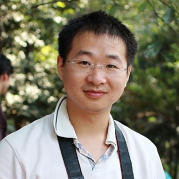//@-马小虎-:非常同意:“约束条件下做事情反而会让人更有创造性”。当代管理学也在逐渐向先从分析约束(constraints)入手,在有限的资源下更聚焦,做高价值、高优先级的事。
#模型时代# 英特尔前CEO帕特·基辛格(Pat Gelsinger)谈DeepSeek带给他的三个启示。
我确实没想到基辛格会出来发文,他这篇博文可以说客观深刻。从一个芯片/ 计算行业老兵的角度,更从一个工程师的角度,给出了三个意见。分别是(括弧内是我的评语):降低AI成本只会带来更多计算需求(利好英伟达以及其他AI股票);约束条件下做事情反而会让人更有创造性(我理解暗含了制裁无用的提议);最后无条件支持开源(我真感觉山姆·奥特曼应该这几天抓紧找微软CEO萨提亚聊聊开源,时间不多了)。
***
标题:智慧——再次学习那些我以为自己已经懂得的教训
近期围绕 DeepSeek 的反响很有意思,不过我认为其中忽视了过去五十年计算机领域为我们带来的三条重要启示。
第一:计算服从“气体定律”。
这意味着它会填满可用空间,而可用空间则由可用资源(资本、功耗、散热预算等)所界定。正如我们在CMOS、个人电脑、多核、虚拟化、移动领域以及其他众多案例中所见,一旦能以极大幅度降低的成本广泛提供计算资源,市场将会出现爆炸式的扩张,而非收缩。
未来,AI会无处不在。以目前的成本水平来看,我们距离真正实现AI潜力还相差数个数量级。我还记得自己第一次使用网络浏览器时的震撼感——“哇!”如今,如果你是个青少年,你大概每分每秒都在使用它。如今市场的反应是错误的,降低AI的成本会扩大市场规模。现在,我是英伟达以及其它AI相关股票的买家,乐于在价格下行时入手。
第二:工程的本质在于“约束”。
DeepSeek 团队面临诸多约束条件,却依然想方设法在各方面都拿出了世界级的成果,而且成本只有同类方案的1/10到1/50。出口管制限制了他们能够获得的资源,于是中国工程师们就必须更具创造性,而他们也确实做到了。他们并不需要数百亿美元的硬件、最新的芯片,以及动辄数十亿美元的训练预算。
我曾在多年前采访过也许是当代最伟大的计算机科学家——唐纳德·克努斯(Donald Knuth)。他详细描述了自己在资源最受限、时间最紧迫的时候,反而做出了最出色的工作。我也将这一见解视为我工程管理生涯中最重要的启示之一。
第三:开放最终会胜出。
近几年,基础模型研究变得日益封闭,这让人颇为失望。在这一点上,我和埃隆(Elon)而不是山姆(Sam)看法更一致——我们确实希望(不如说需要)AI研究能更加开放。我们需要了解训练所用的数据集,研究算法,并对其正确性、伦理以及可能带来的影响进行反思。
Linux、Gcc、USB、Wi-Fi 等等无数案例已经让所有计算机历史的研究者明白了开放的威力。从法律、频谱、工程和推广等多方面来看,开放从来都不容易,总会遭到市场力量的挑战。但只要给开放一个合适的机会,它每一次都能获得胜利。AI对我们的未来实在太重要,不能让一个封闭的生态系统在这个领域成为唯一的存在。
DeepSeek 是一项令人惊叹的工程创新,它将促使AI得到更广泛的应用,也会推动整个行业重新审视“开放式创新”的意义。正是这样一支在资源极度受限的中国团队,提醒了我们所有人计算机历史中这几条最根本的启示。
***
英文版
Wisdom – Learning the lessons I thought I already knew
The response to DeepSeek has been fascinating to watch and I would suggest the response misses three important lessons that we have learned in the last five decades of computing.
First – Computing obeys the gas law. This means, it fills the available space as defined by available resources (capital, power, thermal budgets etc). As we saw in CMOS, PCs, multicore, virtualization, mobile and numerous others; making compute resources broadly available at radically lower price points, will drive an explosive expansion, not contraction, of the market. AI will be in everything going forward and today, it is orders of magnitude too expensive to realize that potential. I recall my first internet browser experience – WOW. And now – its every minute or second of everyday if you are a teenager. The market reaction is wrong, lowering the cost of AI will expand the market. Today I’m an nVidia and AI stock buyer and happy to benefit from lower prices.
Second – Engineering is about constraints. It is clear that the DeepSeek team had numerous constraints and found creative ways to deliver a world class solution in every respect at 10-50X lower costs. Export laws limited the available resources so, Chinese engineers needed to get creative and they did. They didn’t need $10B’s of hardware and the latest chips and a multi-$B training budget. One time years ago I was interviewing the famed (maybe the greatest) computer scientist of our age Donald Knuth. He described in detail how he did his best work when the resources were most severely limited and schedules most demanding. I considered that insight one of the most important of my engineering management career.
Third – Open wins. It has been disappointing to watch the foundational model research become more and more closed over the last few years. In this, I’m more aligned with Elon than Sam – we really want, nay need AI research to increase its openness. We need to know what the training datasets are, study the algorithms and introspect on correctness, ethics and implications. Having seen the power of Linux, Gcc, USB, Wifi and numerous other examples has made this clear to all students of computing history. Fighting the battles of legal, spectrum, engineering and adoption – open is never easy and consistently challenged by market forces. Open wins every time it is given a proper shot. AI is much too important for our future to allow a closed ecosystem to ever emerge as the one and only in this space.
DeepSeek is an incredible piece of engineering that will usher in greater adoption of AI. It will help reset the industry in its view of Open innovation. It took a highly constrained team from China to remind us all of these fundamental lessons of computing history.
我确实没想到基辛格会出来发文,他这篇博文可以说客观深刻。从一个芯片/ 计算行业老兵的角度,更从一个工程师的角度,给出了三个意见。分别是(括弧内是我的评语):降低AI成本只会带来更多计算需求(利好英伟达以及其他AI股票);约束条件下做事情反而会让人更有创造性(我理解暗含了制裁无用的提议);最后无条件支持开源(我真感觉山姆·奥特曼应该这几天抓紧找微软CEO萨提亚聊聊开源,时间不多了)。
***
标题:智慧——再次学习那些我以为自己已经懂得的教训
近期围绕 DeepSeek 的反响很有意思,不过我认为其中忽视了过去五十年计算机领域为我们带来的三条重要启示。
第一:计算服从“气体定律”。
这意味着它会填满可用空间,而可用空间则由可用资源(资本、功耗、散热预算等)所界定。正如我们在CMOS、个人电脑、多核、虚拟化、移动领域以及其他众多案例中所见,一旦能以极大幅度降低的成本广泛提供计算资源,市场将会出现爆炸式的扩张,而非收缩。
未来,AI会无处不在。以目前的成本水平来看,我们距离真正实现AI潜力还相差数个数量级。我还记得自己第一次使用网络浏览器时的震撼感——“哇!”如今,如果你是个青少年,你大概每分每秒都在使用它。如今市场的反应是错误的,降低AI的成本会扩大市场规模。现在,我是英伟达以及其它AI相关股票的买家,乐于在价格下行时入手。
第二:工程的本质在于“约束”。
DeepSeek 团队面临诸多约束条件,却依然想方设法在各方面都拿出了世界级的成果,而且成本只有同类方案的1/10到1/50。出口管制限制了他们能够获得的资源,于是中国工程师们就必须更具创造性,而他们也确实做到了。他们并不需要数百亿美元的硬件、最新的芯片,以及动辄数十亿美元的训练预算。
我曾在多年前采访过也许是当代最伟大的计算机科学家——唐纳德·克努斯(Donald Knuth)。他详细描述了自己在资源最受限、时间最紧迫的时候,反而做出了最出色的工作。我也将这一见解视为我工程管理生涯中最重要的启示之一。
第三:开放最终会胜出。
近几年,基础模型研究变得日益封闭,这让人颇为失望。在这一点上,我和埃隆(Elon)而不是山姆(Sam)看法更一致——我们确实希望(不如说需要)AI研究能更加开放。我们需要了解训练所用的数据集,研究算法,并对其正确性、伦理以及可能带来的影响进行反思。
Linux、Gcc、USB、Wi-Fi 等等无数案例已经让所有计算机历史的研究者明白了开放的威力。从法律、频谱、工程和推广等多方面来看,开放从来都不容易,总会遭到市场力量的挑战。但只要给开放一个合适的机会,它每一次都能获得胜利。AI对我们的未来实在太重要,不能让一个封闭的生态系统在这个领域成为唯一的存在。
DeepSeek 是一项令人惊叹的工程创新,它将促使AI得到更广泛的应用,也会推动整个行业重新审视“开放式创新”的意义。正是这样一支在资源极度受限的中国团队,提醒了我们所有人计算机历史中这几条最根本的启示。
***
英文版
Wisdom – Learning the lessons I thought I already knew
The response to DeepSeek has been fascinating to watch and I would suggest the response misses three important lessons that we have learned in the last five decades of computing.
First – Computing obeys the gas law. This means, it fills the available space as defined by available resources (capital, power, thermal budgets etc). As we saw in CMOS, PCs, multicore, virtualization, mobile and numerous others; making compute resources broadly available at radically lower price points, will drive an explosive expansion, not contraction, of the market. AI will be in everything going forward and today, it is orders of magnitude too expensive to realize that potential. I recall my first internet browser experience – WOW. And now – its every minute or second of everyday if you are a teenager. The market reaction is wrong, lowering the cost of AI will expand the market. Today I’m an nVidia and AI stock buyer and happy to benefit from lower prices.
Second – Engineering is about constraints. It is clear that the DeepSeek team had numerous constraints and found creative ways to deliver a world class solution in every respect at 10-50X lower costs. Export laws limited the available resources so, Chinese engineers needed to get creative and they did. They didn’t need $10B’s of hardware and the latest chips and a multi-$B training budget. One time years ago I was interviewing the famed (maybe the greatest) computer scientist of our age Donald Knuth. He described in detail how he did his best work when the resources were most severely limited and schedules most demanding. I considered that insight one of the most important of my engineering management career.
Third – Open wins. It has been disappointing to watch the foundational model research become more and more closed over the last few years. In this, I’m more aligned with Elon than Sam – we really want, nay need AI research to increase its openness. We need to know what the training datasets are, study the algorithms and introspect on correctness, ethics and implications. Having seen the power of Linux, Gcc, USB, Wifi and numerous other examples has made this clear to all students of computing history. Fighting the battles of legal, spectrum, engineering and adoption – open is never easy and consistently challenged by market forces. Open wins every time it is given a proper shot. AI is much too important for our future to allow a closed ecosystem to ever emerge as the one and only in this space.
DeepSeek is an incredible piece of engineering that will usher in greater adoption of AI. It will help reset the industry in its view of Open innovation. It took a highly constrained team from China to remind us all of these fundamental lessons of computing history.









